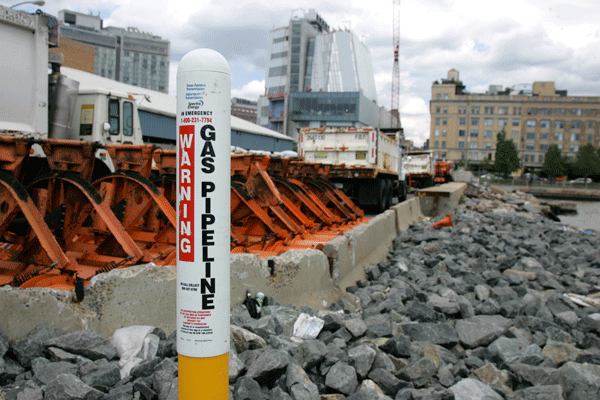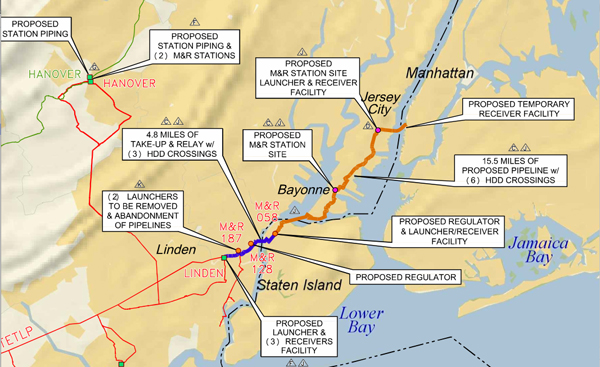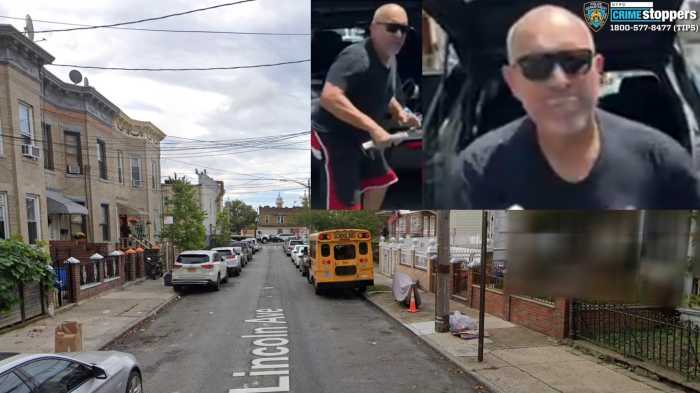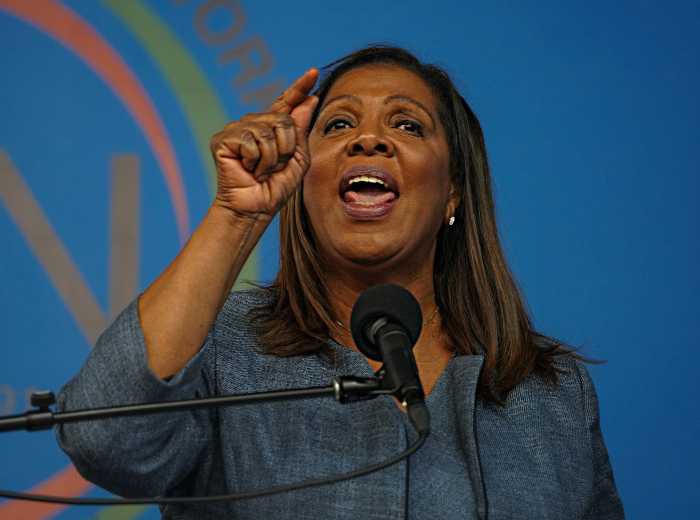
BY SAM SPOKONY | It’s been nearly seven months since the Spectra pipeline came online, pumping millions of cubic liters of natural gas to serve homes throughout New York City. But medical experts, administrators, residents and legislators are still raising urgent concerns about the possibility the gas is also carrying dangerous levels of radon.
Those concerns are part of what sparked numerous protests against the pipeline — which enters the city at Gansevoort Peninsula — long before it became active.
Radon, a radioactive element that normally exists as a tasteless, odorless and colorless gas, is responsible for about 21,000 deaths annually across in the U.S., according to the Department of Health and Human Services. Radon exposure is also recognized to be the leading cause of lung cancer in nonsmokers. And it’s well documented that radon is found in natural gas.
Nevertheless, allowing the Spectra pipeline project to move forward, the Federal Energy Regulatory Commission, or FERC, determined that levels of the radioactive element coming into New York City homes would be low enough not to require special monitoring.
But a number of local lawmakers, including Assemblymember Linda Rosenthal, believe that ignoring the potential health risks of those radon levels could be a grave mistake. Last year, Rosenthal introduced a bill to require constant monitoring of the state’s natural gas delivery points — notably including the Spectra pipeline — in order to prevent radon levels from rising above a certain threshold.
That threshold would correspond to the United Nations’ World Health Organization’s recommendation that radon levels, for public safety, should not exceed 2.7 picocuries per liter of gas.
Rosenthal’s bill would require gas companies — such as Con Edison, the main supplier of gas through the Spectra pipeline — to implement a “radon mitigation response program” to ensure radon levels in their natural gas don’t exceed 2.7 picocuries per liter over any one-hour period. The bill would specifically make it illegal for a company to supply gas to consumers if its radon levels exceed that level, and would let the state impose a $25,000-per-day fine if that limit is exceeded, until acceptable levels are reached.
The Assembly held a hearing on the bill on May 9 in Lower Manhattan, led by Rosenthal, along with Assemblymembers Dick Gottfried, James Brennan and Nily Rozic, who are both are co-sponsors of the bill.
More than a dozen experts and advocates testified in support Rosenthal’s bill. But representatives from Con Ed and other major gas supply companies were no-shows, having declined the invitation to appear publicly.
“Despite all our best efforts, they have refused to participate in today’s discussion,” Rosenthal said of the utilities. “To say I’m disappointed is an understatement. Their actions cannot and will not hide the fact that there is no statewide monitoring system in place to deal with radon levels present in the natural gas that’s delivered to our homes.”
Con Ed did, however, submit written testimony by Andrea Schmitz, Con Ed’s vice president for environment, health and safety. Schmitz argued that, contrary to Rosenthal’s bill, radon mitigation should instead be undertaken by federal entities — which have jurisdiction over natural gas production, transmission and distribution — rather than regional supply companies.
In addition, Schmitz wrote that the added cost to constantly test radon levels would mean “considerable increases in monthly utility bills.”
But speakers on May 9 said the primary concern should be to get more information about current radon levels in New York’s natural gas lines, so as to prevent a potential public health crisis.
“That’s why we need [Rosenthal’s] bill so badly,” said Albert Appleton, former commissioner of the city’s Department of Environmental Protection and a senior fellow at the Cooper Union Institute for Sustainable Design. “We need the information, and we need the remedial authority. We’re going down a path where people are going to have very large amounts of money, and very large amounts of institutional credibility and capital invested in the idea that natural gas is a radon-free, radon-safe fuel. We need to cut that debate off at the pass.”
On May 13, Rosenthal’s bill passed the Assembly’s Committee on Health.
“This is a serious public health risk,” said Assemblymember Gottfried, the committee’s chairperson. “Natural gas coming into our homes should be subject to strict radioactivity limits and monitoring.”
Councilmember Corey Johnson — who was arrested on West St. last November protesting against the pipeline — co-sponsored a resolution supporting Rosenthal’s bill.
“We must ensure all appropriate steps are taken to prevent dangerous radon levels from entering our stoves or homes,” Johnson said.





































